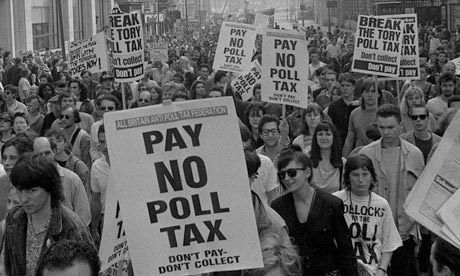This page provides the text and interpreted text of the 24th Amendment of the United States Constitution. It is part of our interactive Constitution.

The End of the Poll Tax |
What does it Say?
Section 1. The right of citizens of the United States to vote in any primary or other election for President or Vice President, for electors for President or Vice President, or for Senator or Representative in Congress, shall not be denied or abridged by the United States or any state by reason of failure to pay any poll tax or other tax.
Section 2. The Congress shall have power to enforce this article by appropriate legislation.
What does it Mean?
The 24th Amendment prohibits states from making voters pay a poll tax before voting. For nearly 100 years prior to the 24th Amendment, such taxes, known as Jim Crow Laws, were designed to keep poor people and African-Americans from voting. At the time of ratification, five states: Virginia, Alabama, Texas, Arkansas, and Mississippi still retained poll taxes. Today, eight states have still not ratified the 24th Amendment.
|
|
|
|
Advertisement

Remove ad